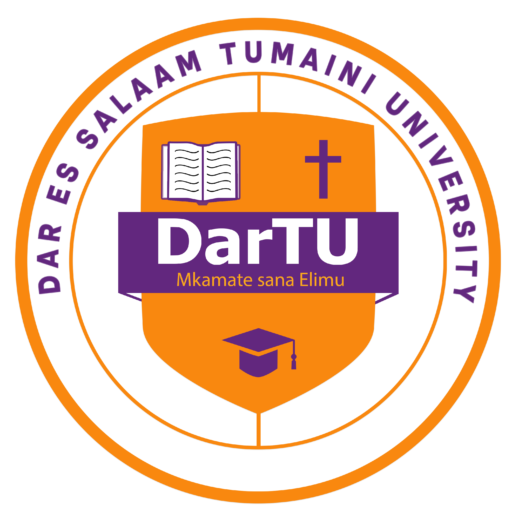SCHOOL OF BUSINESS STUDIES (SoBS)
Welcome to the School of Business Studies
1. Introduction
The School of Business Studies (SoBS) is the oldest academic unit at the University. It was established as the Faculty of Business and Management, and it became the sole Faculty under the then Waldorf College Tanzania (WCT) established in 1997 as a branch of Waldorf College, Iowa Forest Hill of the United States of America (USA). In April 2003, the WCT joined the Tumaini University family and changed its name to Tumaini University Dar es Salaam College (TUDARCo), becoming one of the Constituent Colleges of the Tumaini University Makumira (TUMA) with the Faculty of Business Administration. The latter was transformed into the School of Business Studies in 2021, as part of the re-engineering and re-branding of TUDARCo. In January 2024, TUDARCo was transformed into the present Dar es Salaam Tumaini University (DarTU). The school boasts of the vast experience and its large number of alumni in and outside Tanzania.
2. Academic Units of the School
The School is comprised of three Academic Departments, namely:
- (i) Department of Accounting and Finance;
- (ii) Department of Human Resource Management; and
- (iii)Department of Marketing and Entrepreneurship.
3. Academic Programmes of the School
The SoBs currently offers the following academic programmes:
a) Postgraguate Programmes
Master of Business Administration (MBA) with the following specializations:
- MBA in Banking and Finance
- MBA in Human Resource Management
- MBA in Marketing and Entrepreneurship;
b) Bachelor Degree Programmes:
- Bachelor of Accounting with Computing (BAC);
- Bachelor of Business Administration (BBA Accounting and BBA Marketing); and
- Bachelor of Human Resources Management (BHRM).
c) Non-Degree Programmes
- Certificate in Accounting & Business Administration.
- Diploma in Business Management & Administration.
4. Short Courses
The SoBS offers tailor-made courses. Some of the courses are designed and offered at the University, while others are developed upon request and taught as in-house as demanded by the clients. The school has experienced and seasoned trainers in various fields, including entrepreneurship, balance scorecard training, career counseling and communication and public speaking skills.
In general, in order, to ensure that students enrolled at the University are creative, innovative and entrepreneurial, the School offers across the University, two courses purposely designed to inculcate in students some skills critical to our national priorities, viz, a) Innovation, Entrepreneurship, and Enterprise Development; and, b) Harnessing of Entrepreneurship and Innovators Mindset. The two courses are hands-on, and purposely aimed at building the skills and competencies of students to face the industrial world by being creative/innovative and be able to establish their own enterprises while studying and when they complete their studies.
5.Consultancies and Industrial Linkage
Delivery of public service through consultancy and establishment of links with both public and private sector organizations is one of the important pillars of DarTU.
a) consultancies
To date the SoBS has offered consultancy services to the following firms and institutions:
(i) Tanzania Revenue Authority;
(ii) Tanzania Immigration Department;
(iii) Tanzania Communication Regulatory Authority (TCRA);
(iv) Youth Challenge International (YCI) and Canada World Youth (CWY);
(v) ICE Education Academy (UK);
(vi) Evangelical Lutheran Church of Tanzania;
(vii) United Evangelical Mission (UEM);
(viii) Barclays Bank;
(ix) National Bank of Commerce (NBC); and
(x) National Council for Technical Education (NACTE)
b) Industrial Linkage
The need on the part of the SoBS to link the teaching curricula with the public and private sector has been instrumental to the establishment of relationships with several organizations. This has been in two areas: one is in the development of teaching curricula and the second is seeking practical training opportunities for students in diverse organizations and firms in the private and public sectors. Many of the SoBS students have benefitted from the latter avenue of practical training.
